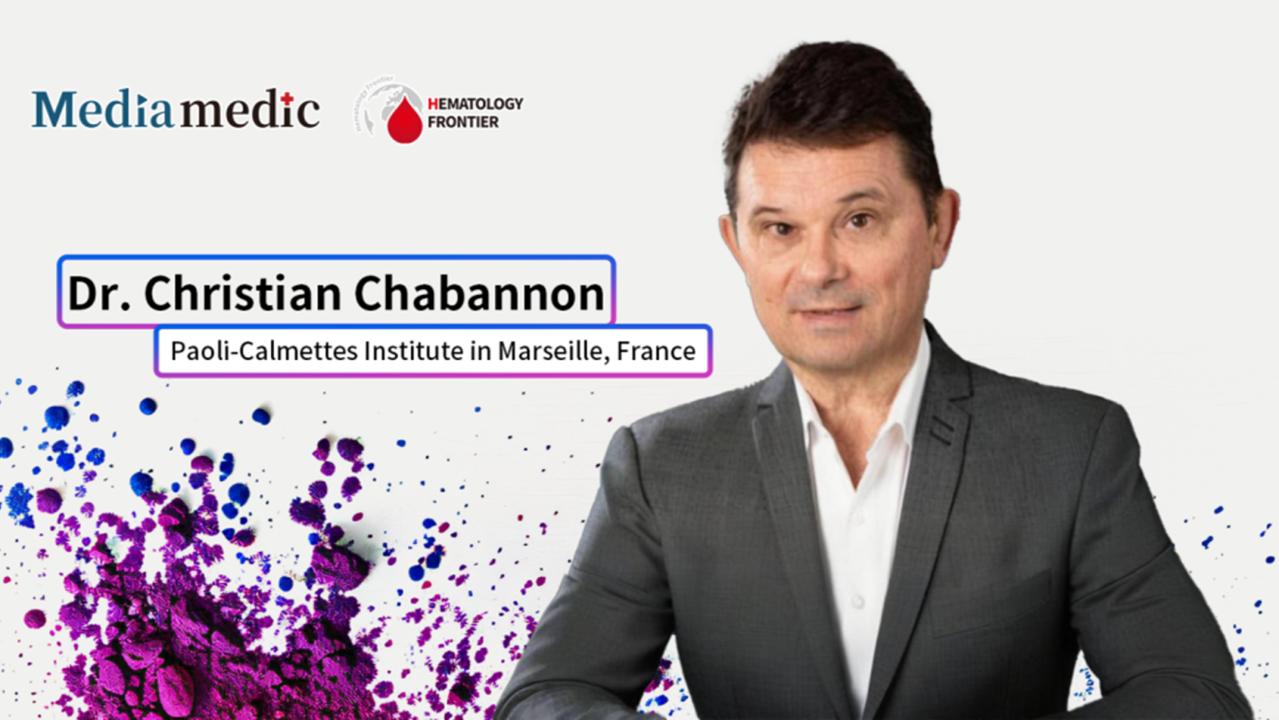Media Medic shared a post on LinkedIn:
“Recently, the 11th Sino-French Hematology Academic Conference, organized by the Chinese Medical Doctor Association, was successfully held in Tianjin, China, attracting hundreds of top experts and scholars in the field of hematology from both China and abroad. During the conference, ‘Hematology Frontier’ specially invited Dr. Christian Chabannon from the Paoli-Calmettes Institute in Marseille, France, to discuss the strategies of personalized immunotherapy from a European perspective.
Hematology Frontier: In Europe, which types of blood cancers have seen the most significant progress with immunotherapy? How have these advancements altered the treatment landscape for these diseases?
Dr. Christian Chabannon: If we think of immunotherapy as medicinal products, then definitely lymphoid malignancies, lymphoma, multiple myeloma, Hodgkin’s disease, and acute lymphoblastic leukemia. I’ve seen significant progress over the, let’s say, 25 last years. If we think of immunotherapy as cell transplant, then allogeneic stem cell transplant still remains an efficient tool to address the needs of myeloid malignancies.
But for myeloid malignancies, we are still waiting for significant improvements coming from newly introduced medicinal product. The CAR-T cell field has been very much publicized. In Europe, we only have access to CAR-T cells that target antigens expressed in B cell lymphoid malignancies. We are eagerly waiting for products to come to be efficient in myeloid malignancies.
Hematology Frontier: What are the unique individual strategies employed in Europe for immunotherapy research and clinical application in blood cancers? How have these innovations contributed to improved treatment outcomes?
Dr. Christian Chabannon: I would say, definitely, this is true of immunotherapy, but more generally caring for those patients. I would say we are moving to more and more personalized approaches to using, selecting the most appropriate treatment strategy for a patient now integrates a huge amount of Information that describes the patient himself or herself, that describes the disease that diagnosis and the disease that relapse, and is trying to better predict the efficacy of one given category of treatment and how we can select the most appropriate treatment for every patient, taking also into account what patients want increasingly, we also use quality of life criteria. And again, the expression of what patient expects from getting one treatment or another. So I would say personalized treatment that integrates clinical Information, that integrates biological Information. Imaging has made huge progress to monitor, as an example, the response of lymphoid malignancies to these various categories of diseases. We now use early imaging evaluation, for example, in lymphoma to tailor the subsequent cycles of the treatment or to the response to the original sequence.
Hematology Frontier: Immunotherapy for blood cancers often comes with certain side effects. What are the experiences and best practices in Europe for managing and mitigating these side effects?
Dr. Christian Chabannon: I think that many years ago, we thought that rationally developed treatments would not carry such safety issue than all treatments like conventional cytotoxic drugs. And this is not true. These treatments come at the expense of, in some cases, very significant side effects, possibly life threatening side effects. So this requests very tight hospital organization. And one of the first requirements is that we have properly trained healthcare professionals, nurses, doctors, and other categories of healthcare professionals. This results in a very significant need for training. And this is one of the challenges at the moment, both for universities, training young people, young doctors, young nurses, and also for professional associations, such as EBMT, such as the European Hematology Association, and others that contribute to continuous training during the professional life of these individuals. And I am very much involved in that transmission to young generations and how to adapt the knowledge of people to an ever changing therapeutic landscape.”


